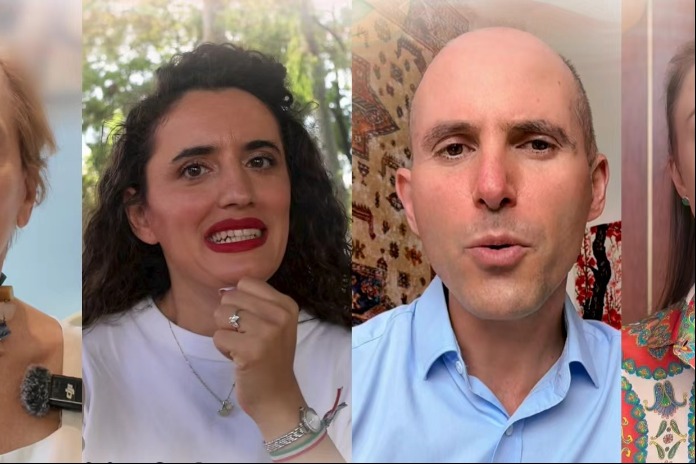Rising crimes add to Argentina's woes and force Sante Fe province to enact tough measures
By Jimena Esteban in Buenos Aires, Argentina | chinadaily.com.cn | Updated: 2024-03-22 15:53
Amid an economic crisis and a political upheaval, Argentina must also grapple with rising illicit activities and crimes, perhaps nowhere more visible than in the province of Santa Fe.
In a bid to curb rising drug-related gang violence, Sante Fe authorities have taken unprecedented measures that have been compared to those taken by El Salvador President Nayib Bukele, who has introduced tough anti-crime policies.
Santa Fe's Governor Maximiliano Pullaro, who is facing mounting pressure to restore order in Argentina's most affected area, has announced plans to build a new maximum security prison after years of delays.
Last week, Pullaro angered cartels by releasing photographs of detainees stripped down to their underwear and kneeling before heavily armed police – a tactic reminiscent of Bukele's crackdowns.
The images were meant as a warning to organized crime bosses following a spate of deaths. In the past few weeks, gangs had carried out retaliatory drive-by shootings, including firing on a bus transporting prison staff, shooting a taxi driver nine times, and killing another driver point-blank in the head, according to prosecutor Franco Carbone.
Among the killings that had outraged the public was the March 9 point-blank shooting of Bruno Bussanich, 25, who worked at a gas station in Rosario, the capital of the province.
"There's a palpable sense of fear and frustration due to the ongoing insecurity… At the service station, we've implemented basic security measures, but they're insufficient given the current situation," Alejandro Di Palma, the owner of the Axion service station where Bussanich was murdered, told the correspondent.
"As for the government's measures, they seem more like ambitious declarations rather than concrete actions. Santa Fe has been neglected by successive governments, and it's unclear if they truly have the will to address the root causes of insecurity," Di Palma said.
Rosario epitomizes the province's battle with violence, recording a murder rate five times higher than the national average as drug trafficking gangs fight for control of its strategic Parana River port. From there, narcotics flow freely from Bolivia, Brazil and Paraguay into Europe and Asia.
"We have been working vigorously on the implementation of a security plan with several key pillars," Esteban Santantino, Secretary of Analysis and Information Management at the Ministry of Security of the Province of Santa Fe, told the correspondent.
The first involves regaining control of the prisons, where the regime for high-profile detainees had been lost. "This explains, in part, why street crime was being controlled from within the prisons of the province," Santantino said.
"At the same time, another fundamental aspect we've been working on is police operability, aiming to reclaim the streets," he said. "At the beginning of our tenure, we found a significantly diminished police presence, with barely 20 patrol cars for the city of Rosario, which, given its metropolitan area, exceeds a million inhabitants. Today, we're nearing 140 patrol cars. However, we acknowledge that we are only halfway there and much more needs to be done to meet the demands of citizens and restore order."
The teams are also focusing on complex investigations, intelligence analysis strategies, and collaborating with federal forces. "While progress has been made, we understand that there is still a long way to go to achieve our objectives," Santantino said.
The provincial government has also enacted new laws to target micro-trafficking and small-scale drug dealings to minimize violence and strengthen the way authorities respond to serious crimes. It has also given more leeway to federal law enforcement agencies and increased resources on the ground.
A key step is the construction of a new, long-delayed maximum security prison, aimed at curbing the power of imprisoned kingpins who still call the shots. But critics argue such drastic moves would only heighten tensions without tackling the root causes of the problem.
Meanwhile, the crackdown is winning praise from some quarters. Argentina President Javier Milei credited Pullaro for a purported 60 percent decline in murder rates, despite scepticism about the figure.
Even Bukele had weighed in, acknowledging Rosario's dire situation while questioning whether Argentina needs methods as extreme as those used in El Salvador.
Regardless of the strategy, residents in the gang-plagued districts of Rosario are desperate for change, with many too afraid to leave home at night in the shadow of local drug dens.
As Argentina continues to be gripped by economic and political turmoil, Santa Fe's leaders are gambling on an iron fist to restore security.
"We remain resolute in our commitment to fight against all forms of criminality and will not backtrack on our security plan," Santantino said.
The writer is a freelance journalist for China Daily.
























